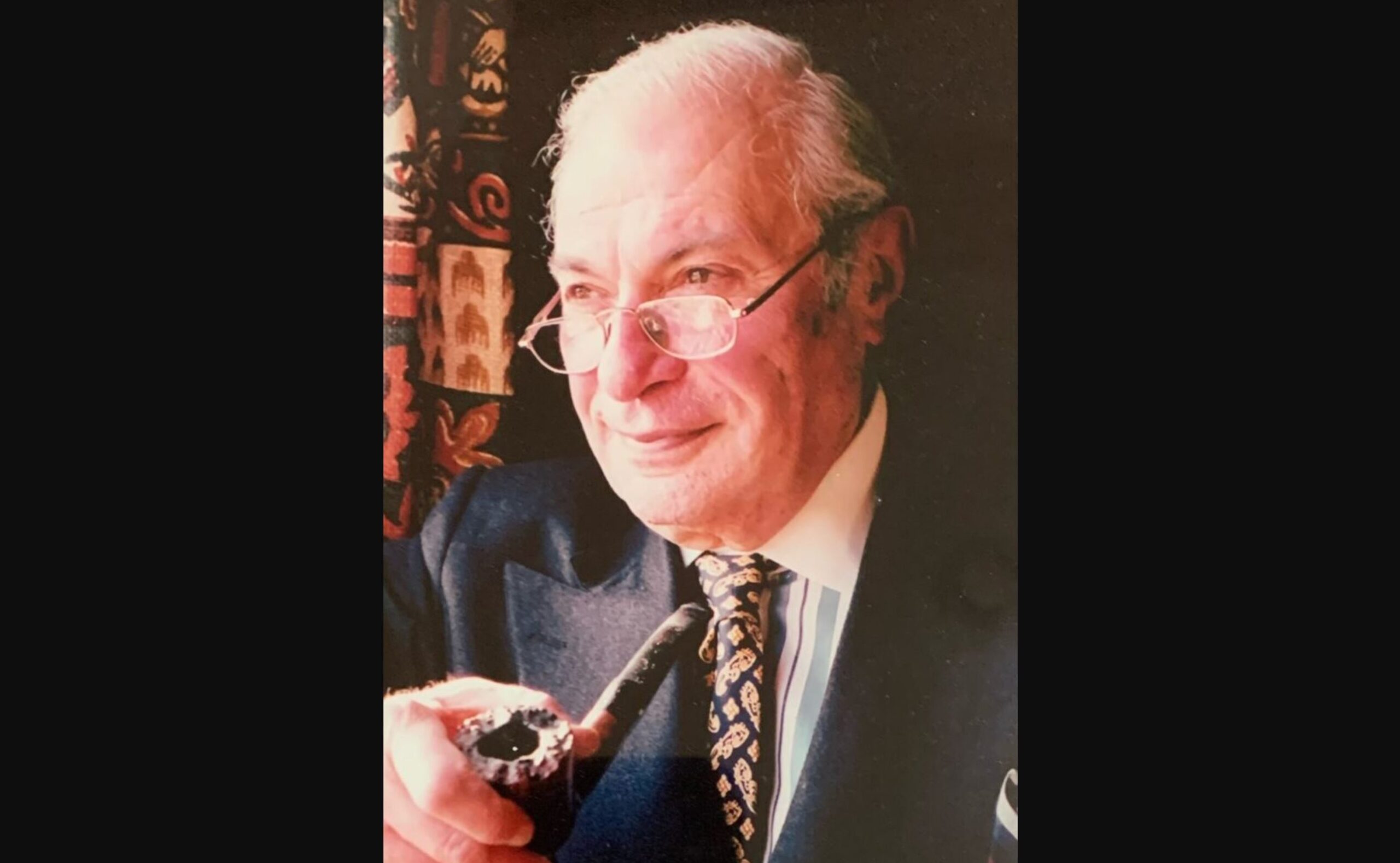A tribute to Dr. Henry Astarjian
- (0)

By Marie Rose Abousefian, Ph.D.
It’s hard to believe that on the other end of the phone I will never, ever hear again: “Yerevan is speaking,” in a cheerful voice that was usually followed by a hearty laugh, the laughter of Dr. Henry Astarjian. I don’t even know how to begin my farewell to a person with whom my friendship has stretched for many years, filled with mutual respect and deep admiration for each other.
With a victorious, noble and proud attitude, a pipe always in his hand and impeccably dressed, this amazing Armenian from Marash would become one of America’s famous neurologists. He participated in the formation of the Armenian community, with his bold political analysis and numerous lectures, connecting the new generation to their roots.
Since 1994, he has participated in conferences of the Parliament of Kurdistan and held meetings with their leaders, defending the interests of the Armenians. He openly made them understand that the southeastern part of Turkey, claimed by the Kurds as their land, remained the property of the Armenians and could not be a matter of negotiation.
In his extremely busy state, he wrote a series of more than 200 articles for Boston’s Hairenik (“Homeland”) magazine under the title “Loud & Clear,” composing a series of interesting and daring analyses in English.
Each year, on April 24 and May 28, he gave active speeches, radio and press interviews dedicated to our independence, which were read and heard in different cities of America, Canada, Armenia, Brussels, London and his birthplace in Iraq.
The biggest was ahead, in 2007. Praeger Security International published his autobiographical book The Struggle for Kirkuk in English, full of historical and political facts. The book was translated twice into Arabic, in Beirut and in Iraqi Kurdistan.
In the days of American justifications for the war against Iraq, it was not easy to write about the destruction of another country’s values by the hands of your own nation.
Despite not being a writer, he was able to masterfully contrast the destructive policies of the interests of big states with the sufferings of an entire country. His book is not only an autobiography, but also a great introduction to the different ethnic groups living in the territory of Iraq: Kurds, Arabs and Turkmen tribes.
Astarjian was born to an Armenian family who escaped from Marash and settled in the Kirkuk region of Iraq. Kirkuk, being one of the largest centers of trade with its enviable abundance of oil and its geographical location, was a connecting link between Iraq, Persia and Turkey, and with its mixed population, it became a field of robbery.
He received his medical education at the Royal College of Medicine in Baghdad. He was sent for military service to the Kurdish-inhabited region, where with his sharp observation he discovered their culture and character and learned their language, which later helped him negotiate with them alone face-to-face.
The Armenians who survived the Genocide tried to isolate themselves and adapt to the frequent political storms of the country, as everywhere else. But many, including the young Astarjian, fell victim to one of those troubled clashes. He was arrested, thrown into prison and, without trial, condemned to death. He lived in horror of his sentence, which he depicted vividly in his book. However, he was released by the fate given to him from above.
In 1960, new political disturbances in Iraq forced him to leave the country and settle in America, in Boston. Astarjian lectured at the famous Tufts University School of Medicine, while at the same time founding his own clinic, working with great success. He married and had children: two boys, Hratch and Vache, and a girl, Jennifer. He was a caring father until the end and a great grandfather to his grandchildren.
He moved to New Hampshire to continue his activity there. He was the first doctor to bring an MRI in medical practice to New Hampshire. There he married Arev, also an Iraqi-Armenian, an exceptionally kind and dedicated person, who surrounded him with great affection and care until his last days.
During and after the coronavirus pandemic, he continued to work from home like many others to the age of 90, until the end of his life on April 4, 2024. On that fateful day, the world lost a wonderful, patriotic Armenian, an ardent Marash citizen, and I lost a loyal friend.
In addition to being extremely Armenian, we were connected by the birthplace of our parents. Both of us were avid Marashtsi, without seeing, without knowing, the fragrance of our motherland, which was imprinted in us with such power that our conversation even necessarily started, ended or was spiced with humor and stories about the Marash food (including chi kofte and keshkek ghabakhly).
Astarjian’s excellent memory, knowledge of Armenian history, sober analysis of world politics and information about the capacity of the human brain stretched and prolonged our conversations, which often ended with him singing. He had a beautiful voice. On holy days he would start with liturgy. I always joked that he should’ve become a clergyman instead of a doctor.
Now, Marash’s voice is silent forever. Our long, interesting conversations will become one-sided, only rich memories in my mind. I am grateful that I got to know him, established a family friendship and as a doctor used him to determine the medical needs of my family and friends.
For the introduction to his book, he chose a Bedouin fable that said, “It was that cloud which brought this rain.”
Today, facing the fact of his absence, I refer to his departed soul with pain with my version of the same fable: “If it wasn’t for that deadly cloud, we two Marashstiner would still continue our interesting conversations, about our country, humanity, the politics of the superpowers who are turning this wonderful world into hell and the capacity of the human brain.”
Rest in peace our beloved Dr. Astarjian. You gave back to your nation and humanity everything that nature created you with. Forever peace to your soul that is trampling through the Motherland, Marash, the passing of the world.
Today, not only your wife, family and relatives mourn your forever departure, but also all those who were cured and lived healthy lives thanks to your treatment, and all those who were inspired by your messages, who will keep you in their memories. Our deepest condolences to Arev, all family members, relatives and colleagues.


















